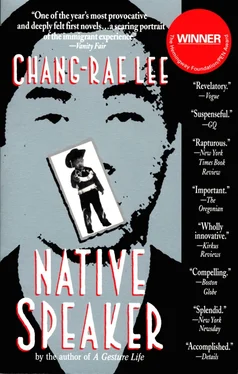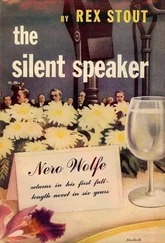The second stroke, just a week before the last one, took away his ability to move or speak. He sat up in bed with those worn black eyes and had to listen to me talk. I don’t think he ever heard so much from my mouth. I talked straight through the night, and he silently took my confessions, maledictions, as though he were some font of blessing at which I might leave a final belated tithe. I spoke at him, this propped-up father figure, half-intending an emotional torture. I ticked through the whole long register of my disaffections, hit all the ready categories. In truth, Lelia’s own eventual list was probably just karmic justice for what I made him endure those final nights, which was my berating him for the way he had conducted his life with my mother, and then his housekeeper, and his businesses and beliefs, to speak once and for all the less than holy versions of who he was.
I thought he would be an easy mark, being stiff, paralyzed, but of course the agony was mine. He was unmovable. I thought, too, that he was mocking me with his mouth, which lay slack, agape. Nothing I said seemed to penetrate him. But then what was my speech? He had raised me in a foreign land, put me through college, witnessed my marriage for my long-buried mother, even left me enough money that I could do the same for my children without the expense of his kind of struggle; his duties, uncomplex, were by all accounts complete. And the single-minded determination that had propelled him through twenty-five years of green-grocering in a famous ghetto of America would serve him a few last days, and through any of my meager execrations.
* * *
I thought his life was all about money. He drew much energy and pride from his ability to make it almost at will. He was some kind of human annuity. He had no real cleverness or secrets for good business; he simply refused to fail, leaving absolutely nothing to luck or chance or someone else. Of course, in his personal lore he would have said that he started with $200 in his pocket and a wife and baby and just a few words of English. Knowing what every native loves to hear, he would have offered the classic immigrant story, casting himself as the heroic newcomer, self-sufficient, resourceful.
The truth, though, is that my father got his first infusion of capital from a ggeh , a Korean “money club” in which members contributed to a pool that was given out on a rotating basis. Each week you gave the specified amount; and then one week in the cycle, all the money was yours.
His first ggeh was formed from a couple dozen storekeepers who knew each other through a fledgling Korean American business association. In those early days he would take me to their meetings down in the city, a third-floor office in midtown, 32nd Street between Fifth and Broadway, where the first few Korean businesses opened in Manhattan in the mid-1960s. On the block then were just one grocery, two small restaurants, a custom tailor, and a bar. At the meetings the men would be smoking, talking loudly, almost shouting their opinions. There were arguments but only a few, mostly it was just all the hope and excitement. I remember my father as the funny one, he’d make them all laugh with an old Korean joke or his impressions of Americans who came into his store, doing their stiff nasal tone, their petty annoyances and complaints.
In the summers we’d all get together, these men and their families, drive up to Westchester to some park in Mount Kisco or Rye. In the high heat the men would set up cones and play a match of soccer, and even then I couldn’t believe how hard they tried and how competitive they were, my father especially, who wasn’t so skilled as ferocious, especially on defense. He’d tackle his good friend Mr. Oh so hard that I thought a fight might start, but then Mr. Oh was gentle, and quick on his feet, and he’d pull up my father and just keep working to the goal.
Sometimes they would group up and play a team of Hispanic men who were also picnicking with their families. Once, they even played some black men, though my father pointed out to us in the car home that they were African blacks. Somehow there were rarely white people in the park, never groups of their families, just young couples, if anything. After some iced barley tea and a quick snack my father and his friends would set up a volleyball net and start all over again. The mothers and us younger ones would sit and watch, the older kids playing their own games, and when the athletics were done the mothers would set up the food and grill the ribs and the meat, and we’d eat and run and play until dark. And only when my father dumped the water from the cooler was it the final sign that we would go home.
I know over the years my father and his friends got together less and less. Certainly, after my mother died, he didn’t seem to want to go to the gatherings anymore. But it wasn’t just him. They all got busier and wealthier and lived farther and farther apart. Like us, their families moved to big houses with big yards to tend on weekends, they owned fancy cars that needed washing and waxing. They joined their own neighborhood pool and tennis clubs and were making drinking friends with Americans. Some of them, too, were already dead, like Mr. Oh, who had a heart attack after being held up at his store in Hell’s Kitchen. And in the end my father no longer belonged to any ggeh , he complained about all the disgraceful troubles that were now cropping up, people not paying on time or leaving too soon after their turn getting the money. In America, he said, it’s even hard to stay Korean.
I wonder if my father, if given the chance, would have wished to go back to the time before he made all that money, when he had just one store and we rented a tiny apartment in Queens. He worked hard and had worries but he had a joy then that he never seemed to regain once the money started coming in. He might turn on the radio and dance cheek to cheek with my mother. He worked on his car himself, a used green Impala with carburetor trouble. They had lots of Korean friends who they met at church and then even in the street, and when they talked in public there was a shared sense of how lucky they were, to be in America but still have countrymen near.
* * *
I know he never felt fully comfortable in his fine house in Ardsley. Though he was sometimes forward and forceful with some of his neighbors, he mostly operated as if the town were just barely tolerating our presence. The only time he’d come out in public was because of me. He would steal late and unnoticed into the gym where I was playing kiddie basketball and stand by the far side of the bleachers with a rolled-up newspaper in his hand, tapping it nervously against his thigh as he watched the action, craning to see me shoot the ball but never shouting or urging like the other fathers and mothers did.
My mother, too, was even worse, and she would gladly ruin a birthday cake rather than bearing the tiniest of shames in asking her next-door neighbor and friend for the needed egg she’d run out of, the child’s pinch of baking powder.
I remember thinking of her, What’s she afraid of , what could be so bad that we had to be that careful of what people thought of us, as if we ought to mince delicately about in pained feet through our immaculate neighborhood, we silent partners of the bordering WASPs and Jews, never rubbing them except with a smile, as if everything with us were always all right, in our great sham of propriety, as if nothing could touch us or wreak anger or sadness upon us. That we believed in anything American, in impressing Americans, in making money, polishing apples in the dead of night, perfectly pressed pants, perfect credit, being perfect, shooting black people, watching our stores and offices burn down to the ground.
Читать дальше












